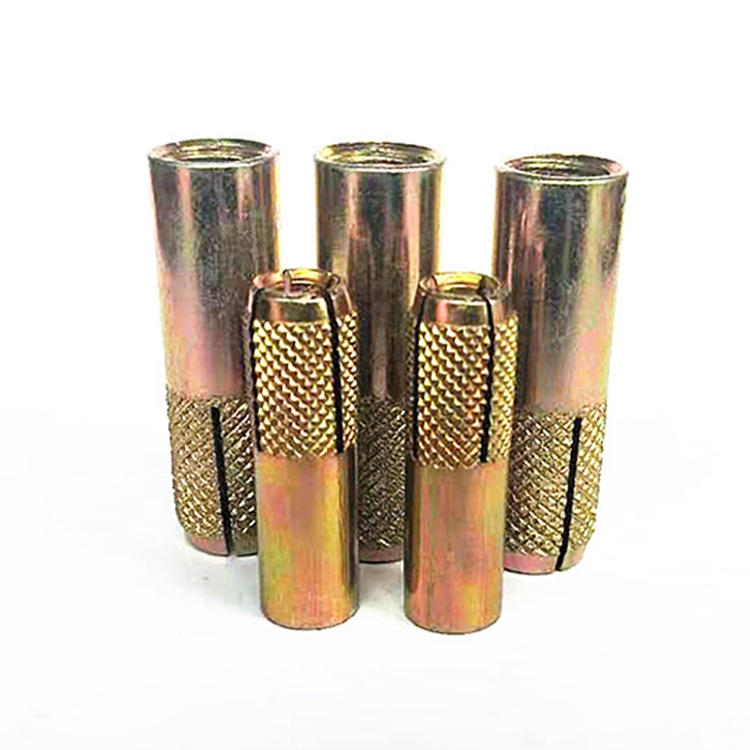mini bolts exporters
Nov . 08, 2024 18:20 Back to list
mini bolts exporters
The Role of Mini Bolts in Global Trade and Exporters' Impact
In the world of fastening technologies, mini bolts may seem like a minor detail, but they play a crucial role in various industries worldwide. From automotive to construction, these small yet mighty components are essential for ensuring structural integrity and functionality. With the increasing demand for mini bolts, exporters have emerged as pivotal players in the international trade landscape, driving innovation while meeting the specific needs of various markets.
Understanding Mini Bolts
Mini bolts, often referred to as small-diameter bolts, are typically defined by their size, which usually ranges from 1/8 inch to 1/4 inch in diameter. Despite their modest dimensions, these bolts are designed to withstand significant loads and stresses. They are used in applications where space is limited, yet a strong connection is vital—think electronic devices, appliances, and even miniature machinery.
The manufacturing of mini bolts involves advanced technology and precision engineering. Exporters often utilize high-grade materials, including stainless steel, aluminum, and specialized alloys, to produce mini bolts that meet stringent international quality standards. As a result, the demand for these exporters has surged, especially with the globalization of supply chains and the rise in manufacturing activities in developing countries.
The Export Landscape
Exporters of mini bolts operate within a complex global network. They face challenges such as fluctuating raw material prices, intense competition, and the need for compliance with regulatory standards across different countries. A successful exporter must not only have skilled labor and advanced machinery but also a deep understanding of market dynamics.
Countries such as China, Germany, and the United States are leading producers and exporters of mini bolts. These nations benefit from a robust manufacturing infrastructure and access to cutting-edge technology. Chinese exporters, for instance, have gained a competitive edge by offering low-cost products while maintaining high quality. Conversely, European exporters often emphasize innovation and sustainability, catering to a market that increasingly values eco-friendly products.
mini bolts exporters

Technological Advancements
The mini bolt export industry has been significantly affected by technological advancements. Automation in manufacturing processes allows exporters to produce high volumes of mini bolts with greater efficiency and precision. Moreover, the use of computer-aided design (CAD) software helps in the development of custom mini bolts tailored to specific client needs. This adaptability allows exporters to capture diverse market segments, from bespoke projects in the aerospace sector to mass production for consumer electronics.
Additionally, advancements in logistics and shipping have streamlined the export process. Modern shipping methods, including containerization and digital tracking systems, have minimized costs and delivery times, making it easier for exporters to reach global markets. Efficient supply chain management practices also enhance their ability to meet customer demands swiftly, fostering stronger relationships with clients worldwide.
Challenges and Future Outlook
While the mini bolt export industry is thriving, it faces several challenges. Trade tariffs, geopolitical tensions, and supply chain disruptions can significantly impact operational efficiency. Exporters must remain agile, adapting their strategies to navigate these complexities while continuing to innovate.
Looking ahead, the demand for mini bolts is likely to grow. With industries continually evolving due to technological advancements and rising consumer expectations, exporters will need to stay ahead of the curve. Emphasizing sustainability, enhancing product quality, and leveraging technology will be crucial in ensuring long-term success.
In conclusion, mini bolts may be small in size, but their significance in global trade is immense. Exporters play a vital role in meeting the needs of various industries, navigating challenges, and embracing innovations. As they continue to adapt and thrive in a dynamic market, mini bolts will remain an integral component of modern manufacturing and construction, solidifying their place in the fabric of international trade.
Latest news
-
High-Quality Panel Stud Bolt Reliable Panel Stud Bolt Factory & Suppliers
NewsJul.08,2025
-
High-Precision Fine Thread Locknuts Manufacturer & Supplier Custom Solutions
NewsJul.08,2025
-
PH Imperial Stud Bolt – High Strength Fasteners from Leading Supplier & Factory
NewsJul.07,2025
-
High-Quality Allen Wrench Bolts Leading Factory, Company & Suppliers
NewsJul.07,2025
-
Wholesale Ball Stud Bolt - High Quality Supplier & Factory Price Reliable Wholesale Ball Stud Bolt Company
NewsJul.06,2025
-
High-Strength Alloy Bolts Manufacturer & Supplier Quality Alloy Fasteners Factory
NewsJul.06,2025
